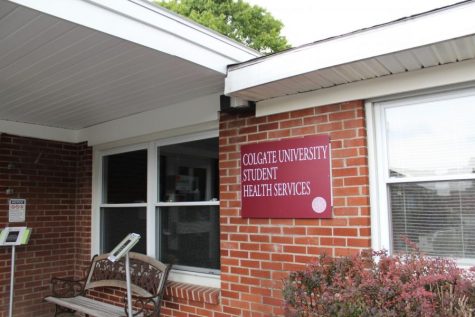Minus the City: This Is Not A Movie
Normally I’m not much of a crier during films. Sure, “The Notebook” and “A Walk to Remember” have the ability to tug at my heartstrings, but most of the time I am able to pull myself together by whispering under my breath, “it’s just a movie.” This past weekend while attending Colgate’s Friday Night Film Series, those words were no longer able to offer me comfort.
The two films that were featured were not only created and produced by members of our very own Colgate community, but they both also focused on an extremely timely issue: abortion. The first film of the night, “The Abortion Diaries,” was directed by our very own Professor of Art and Art History, Penny Lane. Even though the film was created over a decade ago in 2005, the message still remains clear: why are we so afraid to discuss our own personal experiences when it comes to abortion? Lane tackles this issue head on by interviewing 12 women who have all had abortions.
One narrative that I found profoundly powerful was the story of a woman named Tamar. In the 1980s she found out that she was pregnant and decided she wanted an abortion. However, in her home country, abortion was illegal. She traveled to another country, where abortion was also illegal, in order to find a doctor who would help her. Besides having to endure an extremely painful procedure, Tamar then contracted an infection from the operation which made her sterile for the rest of her life.
As I watched this woman tell her story through sobs, I could not help but feel my own chest tighten. I could not use my typical mantra of “this is just a movie,” because it obviously was not. Tamar was absolutely distraught to find out that, due to her illegal abortion, she could no longer become pregnant with a child of her own when she was ready to care for one.
I immediately began thinking of Trump’s recent executive order known as “the global gag rule.” According to CNN, this order “bars international nongovernmental organizations that perform or promote abortions from receiving US government funding.” Let’s just get something straight. As The New York Times reported in 2007, making abortions illegal does not actually decrease the number of abortions that occur. Rather, there are just more lives at risk. The World Health Organization states that “47,000 women die from complications of unsafe abortions each year.” Whether you are pro-life or pro-choice is not the point. What matters is that abortions are going to occur regardless of their legality. However, women’s lives can be saved if they receive the procedure in a safe manner.
One of the sadly ironic aspects of this executive order is that Trump signed it while in a room filled soley with old, white men. Not a single woman was present for the signing of an order that focuses on women’s health and reproductive rights. The current political narrative surrounding abortions is being controlled and manipulated by people (mainly old, rich, white men) who it will not affect whatsoever. However, as Friday night proved, women are finally finding their voices to rewrite this preexisting narrative.
The film by Colgate class of 2013 alumna Poppy Liu, “Names of Women,” although much more experimental, was also made in a documentary format. As with Lane, Liu spent much of her film focusing on the feelings she had following her abortion. The story does not end when an abortion occurs. The decision whether or not to get one, as observed by Liu and Lane, might actually be the simplest aspect of the entire experience. The real pain comes when dealing with the feelings that occur after the procedure, especially if one has to go through it alone.
If I was able to take anything away from both phenomenal films, it is that women need to reclaim their own narrative. We can no longer allow rich, white men to control how our stories are told; we cannot rely on them to keep our bodies and rights safe. Both Lane and Liu were able to find strength and support after admitting they had previously had abortions. They were able to start a ripple-effect in which friends and acquaintances alike came forward to admit that they, too, had gotten abortions.
During this time of uncertainty, we need to come together and talk about difficult issues. We need to destigmatize issues surroundings women’s rights. In the following weeks and months there are sure to be more political changes that can and will affect you directly. Arm yourself with knowledge. Consider signing up for a newsletter from www.collectivesex.org, which is Liu’s own creation. The site also offers panels in New York City that discuss changes associated with new policies.
Pay attention to what is occurring, be willing to reclaim your narrative. This is not just a movie.










